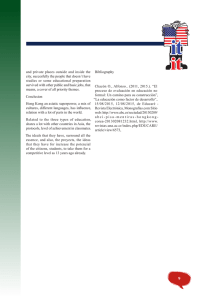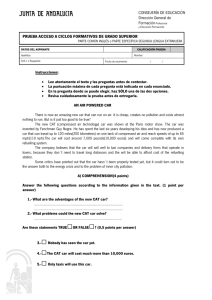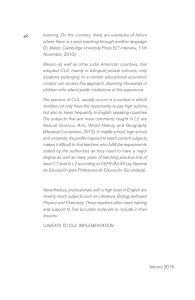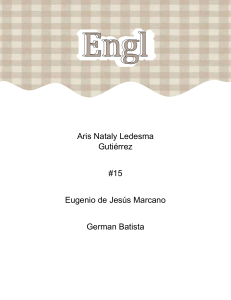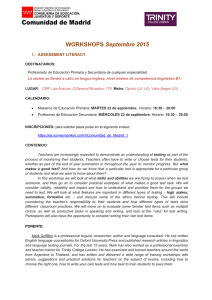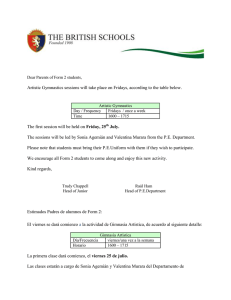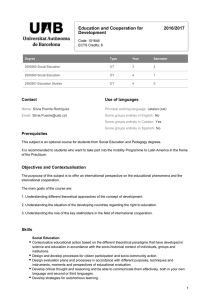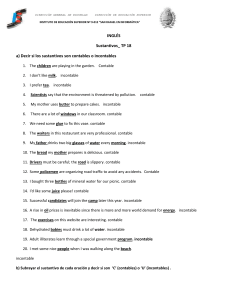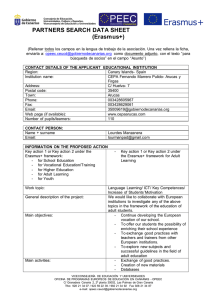La evolucion hacia el Saber Hacer. Un nuevo Paradigma
Anuncio
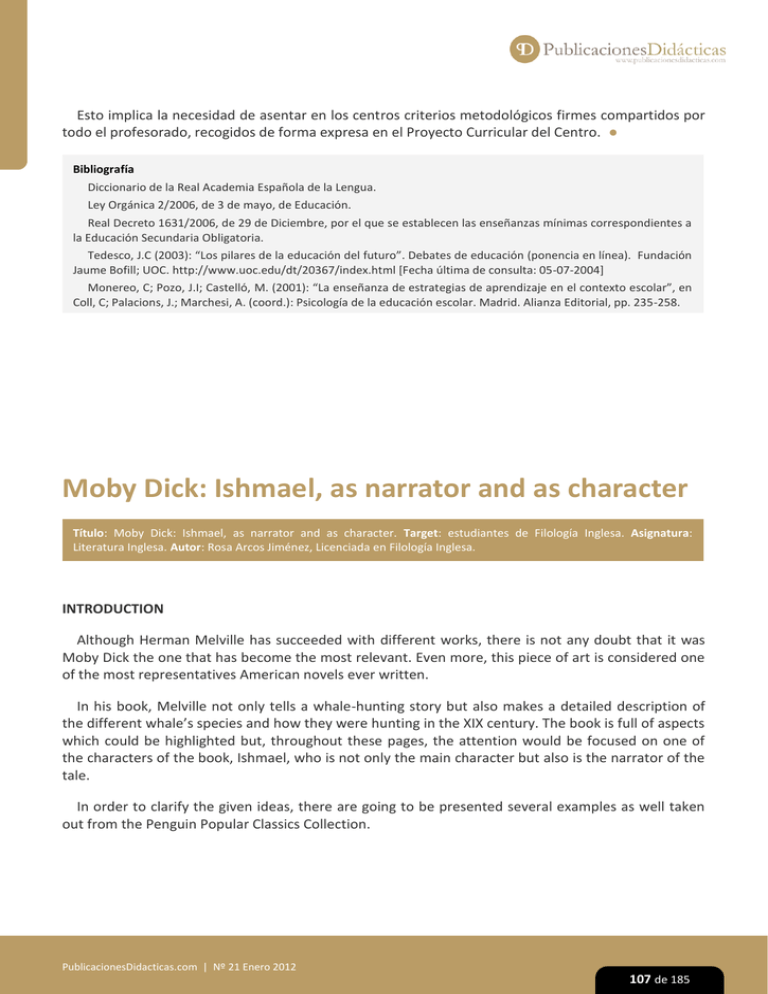
Esto implica la necesidad de asentar en los centros criterios metodológicos firmes compartidos por todo el profesorado, recogidos de forma expresa en el Proyecto Curricular del Centro. ● Bibliografía Diccionario de la Real Academia Española de la Lengua. Ley Orgánica 2/2006, de 3 de mayo, de Educación. Real Decreto 1631/2006, de 29 de Diciembre, por el que se establecen las enseñanzas mínimas correspondientes a la Educación Secundaria Obligatoria. Tedesco, J.C (2003): “Los pilares de la educación del futuro”. Debates de educación (ponencia en línea). Fundación Jaume Bofill; UOC. http://www.uoc.edu/dt/20367/index.html [Fecha última de consulta: 05-07-2004] Monereo, C; Pozo, J.I; Castelló, M. (2001): “La enseñanza de estrategias de aprendizaje en el contexto escolar”, en Coll, C; Palacions, J.; Marchesi, A. (coord.): Psicología de la educación escolar. Madrid. Alianza Editorial, pp. 235-258. Moby Dick: Ishmael, as narrator and as character Título: Moby Dick: Ishmael, as narrator and as character. Target: estudiantes de Filología Inglesa. Asignatura: Literatura Inglesa. Autor: Rosa Arcos Jiménez, Licenciada en Filología Inglesa. INTRODUCTION Although Herman Melville has succeeded with different works, there is not any doubt that it was Moby Dick the one that has become the most relevant. Even more, this piece of art is considered one of the most representatives American novels ever written. In his book, Melville not only tells a whale-hunting story but also makes a detailed description of the different whale’s species and how they were hunting in the XIX century. The book is full of aspects which could be highlighted but, throughout these pages, the attention would be focused on one of the characters of the book, Ishmael, who is not only the main character but also is the narrator of the tale. In order to clarify the given ideas, there are going to be presented several examples as well taken out from the Penguin Popular Classics Collection. PublicacionesDidacticas.com | Nº 21 Enero 2012 107 de 185
